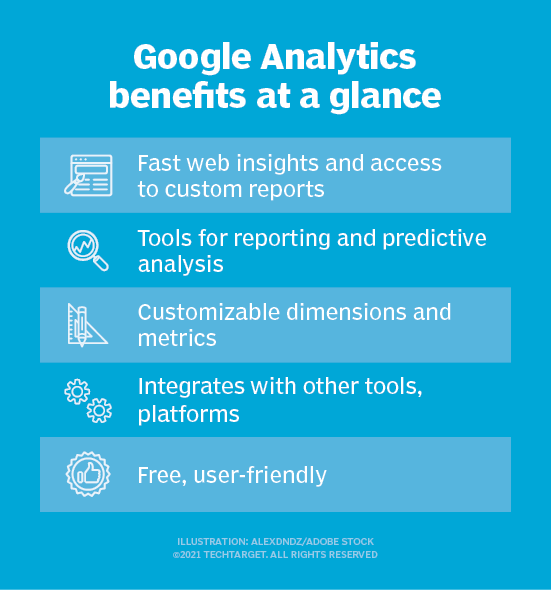
Introduction
In the realm of digital marketing, data-driven decision making is paramount to achieving success and maximizing return on investment (ROI). Google Analytics, a powerful web analytics tool, provides invaluable insights into website performance, user behavior, and marketing effectiveness. For digital marketing agencies, harnessing the capabilities of Google Analytics services is essential to drive data-driven decision making and deliver impactful results for their clients. In this article, we will explore the potential of Google Analytics services and how digital marketing agencies can leverage them to gain actionable insights and make informed decisions.
- Understanding Google Analytics Services: Google Analytics is a robust platform that tracks and reports website traffic, user behavior, and other key metrics. Digital marketing agencies can leverage Google Analytics services to gain a deeper understanding of their clients’ websites, measure marketing campaign performance, and identify areas for improvement. With an array of features and reporting capabilities, Google Analytics empowers agencies to make data-driven decisions to optimize marketing strategies and drive business growth.
- Setting Up Proper Tracking and Goals: To effectively utilize Google Analytics, digital marketing agencies must ensure proper tracking and goal setup. By implementing tracking codes and configuring goals, agencies can collect valuable data on user actions, conversions, and other key performance indicators. Establishing relevant goals, such as newsletter sign-ups, contact form submissions, or e-commerce transactions, allows agencies to measure success and track the impact of marketing efforts.
- Measuring Website Performance: Google Analytics provides comprehensive insights into website p犀利士 erformance. Digital marketing agencies can analyze metrics such as pageviews, bounce rates, average session duration, and exit rates to evaluate the effectiveness of website design, navigation, and content. By identifying pages with high bounce rates or low engagement, agencies can make data-driven optimizations to enhance the user experience and increase conversions.
- Analyzing Audience Behavior: Understanding audience behavior is crucial for digital marketing success. Google Analytics enables agencies to delve into demographics, interests, device usage, and acquisition channels of website visitors. By segmenting the audience based on these factors, agencies can tailor marketing strategies, personalize messaging, and optimize campaigns to resonate with specific target segments, resulting in more effective and targeted marketing efforts.
- Evaluating Marketing Campaigns: Google Analytics allows digital marketing agencies to track and evaluate the performance of marketing campaigns. By implementing UTM parameters and tracking campaign URLs, agencies can measure the effectiveness of different marketing channels, campaigns, and promotional activities. This data enables them to allocate resources efficiently, optimize campaigns in real-time, and focus efforts on high-performing channels, ultimately improving ROI.
- Utilizing Conversion Tracking and E-commerce Analytics: Google Analytics offers powerful conversion tracking and e-commerce analytics features. Digital marketing agencies can measure and analyze conversion rates, revenue, and transaction data to assess the effectiveness of marketing efforts in driving conversions and revenue generation. By understanding the customer journey, identifying bottlenecks, and optimizing conversion funnels, agencies can enhance the overall conversion rate and drive tangible business outcomes.
- Creating Custom Reports and Insights: Google Analytics provides flexibility in creating custom reports and insights tailored to specific business needs. Digital marketing agencies can generate customized reports to highlight key metrics, trends, and performance indicators relevant to their clients’ goals. These reports facilitate data-driven decision making and enable agencies to communicate the value of their services to clients effectively.

Google Analytics Services
What is Google Analytics? Google Analytics is a web analytics service that furnishes statistics and fundamental analytical tools for the purposes of search engine optimization (SEO) and marketing. This service is a component of the Google Marketing Platform and is freely accessible to anyone with a Google account.
Google Analytics serves the purpose of monitoring website performance and amassing insights into visitor behavior. It aids organizations in identifying primary sources of user traffic, evaluating the effectiveness of their marketing initiatives and campaigns, monitoring the achievement of specific goals (like purchases or adding products to carts), recognizing patterns and trends in user engagement, and gathering visitor data, including demographics. Many small and medium-sized retail websites rely on Google Analytics to acquire and analyze diverse customer behavior metrics, which can be utilized to enhance marketing campaigns, boost website traffic, and enhance visitor retention.
How does Google Analytics work?
Google Analytics collects user data from each website visitor by employing page tags. A JavaScript page tag is embedded within the code of every page. This tag operates within the web browser of each visitor, gathering data and transmitting it to one of Google’s data collection servers. Subsequently, Google Analytics generates customizable reports for the tracking and visualization of data such as user counts, bounce rates, average session durations, channel-based sessions, page views, goal accomplishments, and more.
Our Google Analytics Services
Google Analytics is the preferred choice for analytics on over 72% of websites in the Quantcast Top 100K, and Thrive Internet Marketing Agency aligns with this preference. We employ Google Analytics across all our clients’ websites to provide valuable insights into their online marketing efforts. Our marketing team members hold Google Analytics certifications, and Thrive proudly holds the status of being a Google Certified Partner.
Google Analytics Audit Services
If you require a thorough evaluation of your Google Analytics account, Thrive can conduct a comprehensive Google Analytics audit to ensure there are no discrepancies or data collection issues. Our team comprises certified Google Analytics experts who will review the tracking code, configuration settings, data accuracy, conversion tracking, and account linkages.
Google Analytics Account Setup
Our team is well-equipped to assist you in the proper setup and implementation of a new or existing Google Analytics account. We ensure that your analytics account is configured accurately, capturing essential business data for your data analysis needs.
Google Analytics Consulting Services
If your Google Analytics is already up and running but you seek to maximize its potential, our team of Google Analytics experts can provide consulting services. We work with you to define your data objectives, interpret your existing data, suggest strategies for consolidating data from multiple websites, create customizable reports, establish conversion funnels, and more.

Key Metrics A metric serves as a quantitative measurement standard. Google Analytics empowers users to track a multitude of up to 200 distinct metrics for gauging the performance of their websites. While the relevance of specific metrics may vary among businesses, the following metrics are among the most widely used:
Users: A user represents a unique or first-time visitor to the website. Bounce rate: This metric denotes the percentage of visitors who viewed just one page, resulting in a single request to the Google Analytics server. Sessions: A session comprises a set of visitor interactions within a 30-minute activity window. Average session duration: This metric reveals the average duration visitors spend on the site. Percentage of new sessions: It signifies the percentage of website visits that constitute initial visits. Pages per session: This indicates the average count of page views per session. Goal completions: This metric signifies the number of times visitors successfully execute a specified and desirable action, also known as a conversion. Page views: The total number of pages viewed. Metrics vs. Dimensions Google Analytics reports consist of dimensions and metrics, and it’s crucial to grasp the distinction between them for accurate report interpretation.
Dimensions: These are qualitative attributes or labels employed to describe and organize data. For instance, if average session length is being measured across various regions, the dimension would be ‘Region.’ In contrast, ‘Average session length,’ which is a quantitative measurement, serves as an example of a metric.
Dimensions can be tailored in Google Analytics. Common dimensions encompass:
- Language
- Browser type
- City and country
- Device models
- User age group
Metrics: These are quantitative measurements of a singular data type. Examples of metrics encompass average session lengths, page views, pages per session, and average time on site. Metrics are employed to compare measurements across diverse dimensions.
Advantages and Limitations Google Analytics presents specific advantages and limitations. The pros predominantly revolve around the platform’s robustness, cost-effectiveness, and user-friendliness. Notably, Google Analytics delivers the following benefits:

- The service is cost-free, user-friendly, and suitable for beginners.
- Google Analytics offers a wide array of metrics and customizable dimensions, enabling the capture of diverse and valuable insights.
- The platform encompasses various supplementary tools, such as data visualization, monitoring, reporting, and predictive analysis.
Nonetheless, Google Analytics has historical limitations that may impact data accuracy, including the following:
- Overall data precision may be compromised by users who block Google Analytics cookies, specific browser extensions, ad filtering programs, and privacy networks.
- Reports employ sampling techniques on 500,000 random sessions to alleviate server load. Additionally, margins of error are solely provided for visit numbers within these reports, leading to potentially substantial error margins in smaller data segments
Conclusion
Google Analytics services offer digital marketing agencies a wealth of actionable insights and data-driven decision-making capabilities. By effectively leveraging Google Analytics, agencies can measure website performance, understand audience behavior, evaluate marketing campaigns, track conversions, and create custom reports. Armed with these insights, agencies can optimize marketing strategies, allocate resources effectively, and drive tangible business outcomes for their clients. Google Analytics services serve as a powerful tool in the arsenal of digital marketing agencies, empowering them to deliver impactful results and achieve success in the dynamic and data-centric world of digital marketing.
If you are looking to buy one click here, contact us here
Follow us on Instagram
